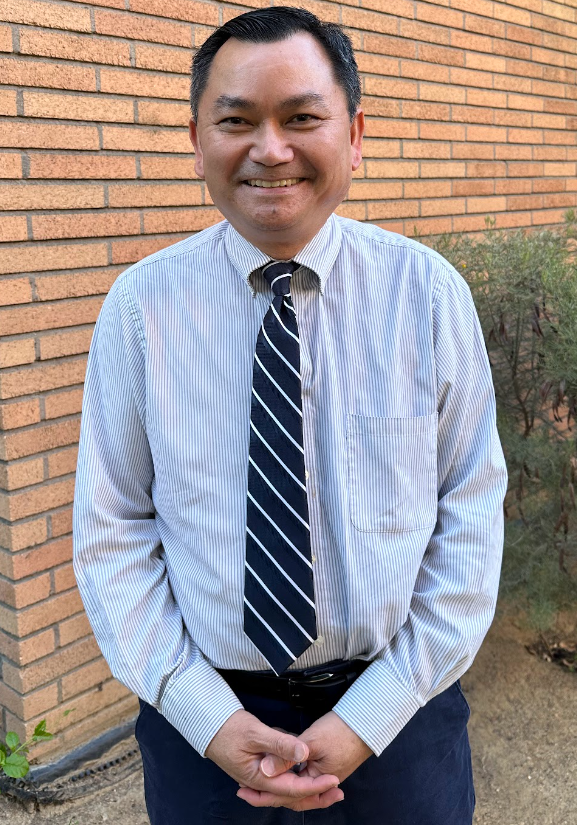Our association is a robust and diverse set of educators, students, researchers, medical professionals, volunteers and academics that come from all walks of life and from around the globe. Each month we choose a member to highlight their academic and professional career and see how they are making the best of their membership in IAMSE. This month’s Featured Member is Khiet Ngo.
Khiet Ngo
Associate Dean of Clinical Skills Education and Innovation
University of California, Riverside School of Medicine
Riverside, California, USA
How long have you been a member of IAMSE?
I have been an active member of IAMSE for 7 years.
Looking at your time with the Association, what have you most enjoyed doing? What are you looking forward to?
Learning! As a clinician, I used to spend much of my time thinking about and practicing “clinical medicine.” Having the privilege of being part of the IAMSE community has helped me to re-discover the value and importance of the basic sciences in daily clinical practice. The “learning” has come from the annual meetings, the many collaborations and friendships with basic scientists that IAMSE has made possible, and service to the organization. Cognitive integration and adaptive expertise are frameworks that are currently at the forefront of medical education pedagogy. I hope to contribute to efforts within IAMSE and beyond to develop tools and strategies to bring these principles into practice for learners and educators.
What interesting things are you working on outside of the Association right now?
Serving as Associate Dean for Clinical Skills Education and Innovation at the University of California, Riverside School of Medicine (UCR-SM) may be one of the best jobs in the world! As a relatively young (10 years) medical school, our students, faculty, and leadership are continuing to lay the foundation and build the culture of the school for decades to come. In this role, my day-to-day work involves collaborating with different disciplinary teams to integrate key domains of undergraduate medical education – basic science, clinical science, doctoring, health system science, physician identity formation, and clinical reasoning. How to do this integration effectively in a complex learning environment that includes sophisticated learners, busy faculty, and the explosion of artificial intelligence is a daily joyous challenge!
As of earlier this year, you are a new Associate Editor for Medical Science Educator. What do you enjoy about this position and being a part of MSE?
The opportunity to be a part of the Medical Science Educator Editorial Board is really about learning for myself and service to IAMSE and our larger medical education community. The amount of talent, experience, and wisdom on the board is off the charts. As the new kid on the block, I’m constantly learning from the other board members who all have much more experience than I have. The chance to do the actual reviews from the perspectives of the authors, the review team, and as Associate Editor is also such a unique learning opportunity. I have learned so much from every manuscript I review, reading the summaries from other reviewers, and offering insights to the authors to help make their manuscript just that much better, which hopefully will translate into a better experience for readers of the Journal.
How does being a physician play into your role in preclerkship and basic science education?
Being a clinician who serves predominantly in the pre clerkship medical education space has been quite complimentary. This blend has shaped how I frame basic science topics when working with pre-clerkship students, and it has also influenced how I frame clinical science for our clinical students. This dual role has helped me to “see” the cognitive integration that many learning scientists suggest makes for more effective learning, and better prepares learners for their future learning.
Anything else that you would like to add?
Yes! If you’re a basic scientist, find ways to collaborate more with clinicians. Nudge them to join IAMSE! If you’re a clinician, open the doors to the basic sciences and basic scientists into your clinical practice and clinical teaching – this will improve care for patients and learning for your students.
